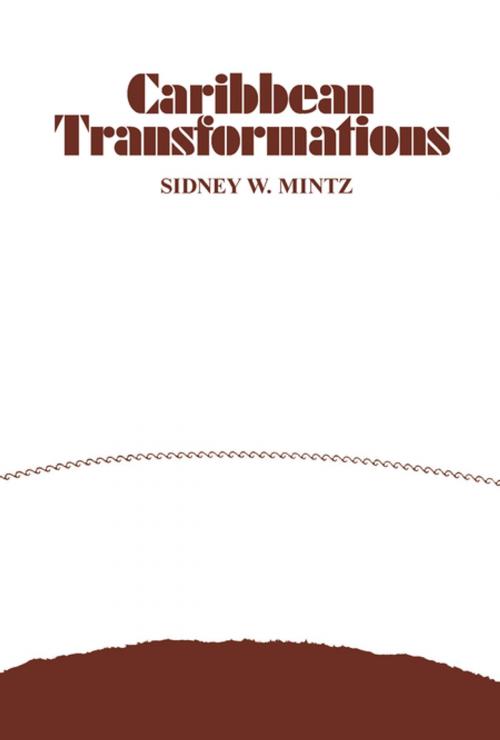| Author: | ISBN: | 9781351530040 | |
| Publisher: | Taylor and Francis | Publication: | September 4, 2017 |
| Imprint: | Routledge | Language: | English |
| Author: | |
| ISBN: | 9781351530040 |
| Publisher: | Taylor and Francis |
| Publication: | September 4, 2017 |
| Imprint: | Routledge |
| Language: | English |
Contact and clash, amalgamation and accommodation, resistance and change have marked the history of the Caribbean islands. It is a unique region where people under the stress of slavery had to improvise, invent and literally create forms of human association through which their pasts and the symbolic interpretation of their present could be structured.Caribbean Transformations is divided into three major parts, each preceded by a brief introductory chapter. Part One begins with a look at the African antecedents of the Caribbean, then discusses slavery and the plantation system. Two chapters deal with slavery and forced labor in Puerto Rico and the history of a Puerto Rican plantation. Part Two is concerned with the rise of a Caribbean peasantry--the erstwhile slaves who separated themselves from the plantation system on small plots of land. This creative adaptation led to the growth of a class of rural landowners producing a large part of their own subsistence but also selling to and buying from wider markets. Mintz first discusses the origins of reconstructed peasantries, and then proceeds to the specifics of the origins and history of the peasantry in Jamaica. Part Three turns to Caribbean nationhood--the political and economic forces that affected its shaping and the social structure of its component societies. A separate chapter details the case of Haiti. The book ends with a critique of the implications of Caribbean nationhood from an anthropological perspective, stressing the ways that class, color and other social dimensions continue to play important parts in the organization of Caribbean societies.Caribbean Transformations--lucidly written and presenting broad coverage of both time and space--is essential reading for anthropologists, sociologists, historians and all others interested in the Caribbean, in black studies, in colonial problems, in the relationships between colonial areas and the imperial powers, and in culture change generally.
Contact and clash, amalgamation and accommodation, resistance and change have marked the history of the Caribbean islands. It is a unique region where people under the stress of slavery had to improvise, invent and literally create forms of human association through which their pasts and the symbolic interpretation of their present could be structured.Caribbean Transformations is divided into three major parts, each preceded by a brief introductory chapter. Part One begins with a look at the African antecedents of the Caribbean, then discusses slavery and the plantation system. Two chapters deal with slavery and forced labor in Puerto Rico and the history of a Puerto Rican plantation. Part Two is concerned with the rise of a Caribbean peasantry--the erstwhile slaves who separated themselves from the plantation system on small plots of land. This creative adaptation led to the growth of a class of rural landowners producing a large part of their own subsistence but also selling to and buying from wider markets. Mintz first discusses the origins of reconstructed peasantries, and then proceeds to the specifics of the origins and history of the peasantry in Jamaica. Part Three turns to Caribbean nationhood--the political and economic forces that affected its shaping and the social structure of its component societies. A separate chapter details the case of Haiti. The book ends with a critique of the implications of Caribbean nationhood from an anthropological perspective, stressing the ways that class, color and other social dimensions continue to play important parts in the organization of Caribbean societies.Caribbean Transformations--lucidly written and presenting broad coverage of both time and space--is essential reading for anthropologists, sociologists, historians and all others interested in the Caribbean, in black studies, in colonial problems, in the relationships between colonial areas and the imperial powers, and in culture change generally.















